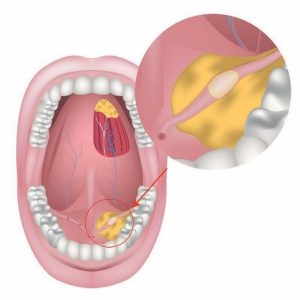Salivary Gland Stones: Causes, Symptoms, Treatment, and Prevention
Salivary gland stones, also known as sialolithiasis, can disrupt oral health and cause discomfort. This article provides an in-depth understanding of the causes, symptoms, available treatments, and preventive measures related to salivary gland stones.

What Are Salivary Gland Stones?
Salivary gland stones, or sialoliths, are mineral deposits that form in the ducts of salivary glands. These stones can hinder the flow of saliva, leading to pain, swelling, and potential infection. They primarily affect the major salivary glands located around the mouth and jaw.
Causes and Risk Factors of Salivary Gland Stones
The formation of salivary gland stones is often attributed to a combination of factors. Dehydration, poor oral hygiene, and changes in saliva composition can contribute to stone development. Individuals with a history of previous stones, certain medical conditions, or those undergoing radiation therapy are at a higher risk.
Common Symptoms and Signs
Detecting salivary gland stones early is crucial for effective management. Common symptoms include pain or discomfort while eating, swelling, dry mouth, and intermittent or persistent discomfort in the affected gland area. Symptoms might worsen during meals when saliva production increases.
Diagnosing Salivary Gland Stones
Accurate diagnosis is essential for proper treatment. Imaging techniques like ultrasound, CT scans, and sialography can help identify the size, location, and number of stones. A physical examination and medical history review also aid in confirming the presence of salivary gland stones.
Treatment Options
The approach to treating salivary gland stones depends on factors such as stone size, location, and the severity of symptoms. Hydration, warm compresses, and massaging the affected area might facilitate stone passage. For larger or persistent stones, medical interventions like endoscopic removal or extracorporeal shock wave lithotripsy can be employed.
Preventing Salivary Gland Stones
Preventing the formation of salivary gland stones involves adopting healthy oral habits. Staying well-hydrated, maintaining good oral hygiene, and avoiding factors that contribute to stone formation, such as excessive caffeine or tobacco use, can minimize the risk. Regular dental check-ups also allow for early detection and management.
When to Seek Medical Attention
Prompt medical attention is necessary if symptoms worsen or if complications like infection arise. Individuals experiencing severe pain, fever, or difficulty swallowing should consult a healthcare professional. Timely intervention can prevent complications and ensure optimal recovery.
Potential Complications
Leaving salivary gland stones untreated can lead to serious complications, such as infections, abscesses, or even blockage of saliva flow. These complications highlight the importance of addressing the issue promptly and comprehensively.
Living with Salivary Gland Stones
Managing salivary gland stones involves adopting strategies to alleviate discomfort and prevent recurrence. Maintaining good hydration, following medical advice, and practicing proper oral hygiene are crucial steps. Lifestyle modifications can go a long way in ensuring long-term oral health.
Frequently Asked Questions (FAQs) About Salivary Gland Stones
Q1: What are salivary gland stones?
A1: Salivary gland stones, or sialoliths, are calcified deposits that form within the salivary glands, obstructing the flow of saliva.
Q2: What causes salivary gland stones?
A2: Dehydration, poor oral hygiene, changes in saliva consistency, and anatomical factors can contribute to the development of salivary gland stones.
Q3: What are the common symptoms of salivary gland stones?
A3: Common symptoms include pain or swelling in the affected gland area, difficulty swallowing, dry mouth, and intermittent discomfort during meals.
Q4: How are salivary gland stones diagnosed?
A4: Diagnosis involves physical examinations, medical history review, and imaging tests such as ultrasound or CT scans to locate and assess the size of the stones.
Q5: Can salivary gland stones be treated without medical intervention?
A5: Small stones might pass on their own with supportive measures like hydration and warm compresses. However, larger stones or persistent symptoms often require medical attention.
Q6: What are the available treatment options for salivary gland stones?
A6: Treatment options include hydration, warm compresses, massaging the affected area, and surgical interventions like endoscopic removal or lithotripsy.
Q7: Can salivary gland stones lead to complications?
A7: Untreated salivary gland stones can result in infections, abscesses, or blockage of saliva flow, potentially leading to more serious health issues.
Q8: How can salivary gland stones be prevented?
A8: Preventive measures include staying hydrated, maintaining good oral hygiene, avoiding excessive caffeine consumption, and seeking prompt medical attention when needed.
Q9: Are there home remedies to alleviate symptoms?
A9: Gargling with warm salt water, sipping lemon water, and maintaining proper oral hygiene can provide relief alongside medical treatments.
Q10: Can salivary gland stones recur after treatment?
A10: Yes, there is a possibility of recurrence. However, adopting preventive measures, staying hydrated, and maintaining oral health can help reduce the risk.
Conclusion
Salivary gland stones can disrupt daily life, but understanding their causes, symptoms, and treatment options empowers individuals to take control of their oral health. By staying proactive, seeking medical attention when needed, and adopting preventive measures, we can minimize the impact of salivary gland stones and maintain optimal oral well-being.




